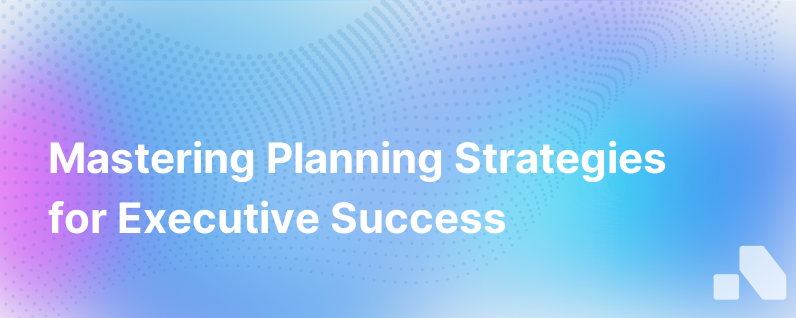
Let’s face it, business planning is no breeze, especially in today's highly competitive and volatile business climate. The shift from a product-centric model to a customer-centric one only ups the ante.
Planning strategies, the cornerstone to any successful business venture, allow you to set goals, determine the best course of action, manage resources, assess risk, and much more. The problem is, most businesses conflate planning strategies with a standard business plan.
In this article, we'll delve deeper into strategy planning and its key elements while also showing you how AI and platforms like Aomni streamline the process.
The Bread and Butter of Planning Strategies
Efficient planning strategies serve as a blueprint for all business decisions and actions. The fundamental aspects of planning strategies include:
- Setting objectives: This entails outlining clear, quantifiable, and achievable goals. These objectives will guide all business activities.
- Assessing the environment: Scrutinize the current business environment to identify opportunities and threats, strengths, and weaknesses. These insights help lay down the groundwork for your business plan.
- Developing a strategic plan: Use your set objectives and environmental assessment to craft a strategic plan. This plan should define the path your business will take to achieve its goals.
- Implementing the plan: Move from planning to action. Roll out the plan and oversee its execution, making sure all components work towards the intended goal.
- Monitoring and adjustments: Monitor the progress of the business and make necessary adjustments along the way. No plan should be set in stone; it should evolve as conditions change.
Essential Planning Strategies
Classic Strategic Planning At the heart of classic strategic planning is evaluating the strengths, weaknesses, opportunities, and threats of your business environment. You then use this information to set strategic objectives. Over time, you monitor progress and make necessary adjustments. Progress tracking is crucial in this strategy because it sustains the momentum and aids in decision-making.
Scenario Planning Another popular planning strategy, particularly in volatile environments, is scenario planning. By predetermining multiple scenarios (and associated responses), you're well-prepared for different eventualities. It reduces uncertainty and manages risk. But its main advantage is the power to react quickly when those scenarios materialize.
Real-time Strategy Building This strategy operates on the assumption that the external business environment changes too rapidly to allow a long-term plan. Real-time strategy building shuns rigid strategies and instead responds to changes as and when they occur. Through continually assessing the business environment, you’re able to make informed decisions on the go.
AI-Driven Planning Lastly, the power of AI cannot be ignored in fostering efficient planning strategies. AI provides a significant competitive advantage, primarily through data analysis. Unprecedented data crunching capacity, coupled with intelligent analysis, grants businesses the power to predict and meet emerging trends.
The Power of AI in Streamlining Planning
No one said planning strategies were easy. The process is often labor-intensive, time-consuming, and prone to human error. However, AI platforms like Aomni change this narrative.
By providing real-time account research and actionable competitive insights, Aomni extracts the guesswork from planning. For instance, Aomni's algorithms continuously evaluate the business environment, identifying industry trends, potential opportunities, and threats, and enabling real-time strategy building.
Aomni further cuts through the noise by delivering personalized sales content in just 15 minutes. From setting objectives to monitoring progress and making adjustments, Aomni facilitates every step of the process.
In Conclusion
Regardless of your business size or industry, understanding and implementing planning strategies is crucial. These strategies provide a roadmap towards achieving business goals while equipping you with tools to exploit opportunities and manage risk. Harness the power of AI to automate and streamline your planning process. Keep an open mind, be willing to adjust, and remember: planned action is better than reaction. Platforms like Aomni make your planning process more efficient, delivering insights and personalization, turning hindsight into foresight, and gearing you up for sustained success.